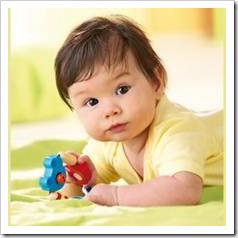 Regrettably, we are all born helpless and unable to do most things at all, never mind perfectly. All kids start life in this position, no exception. From there, we do our best to learn the ways of the world during childhood using the only method we can – trial and, unfortunately, error.
Regrettably, we are all born helpless and unable to do most things at all, never mind perfectly. All kids start life in this position, no exception. From there, we do our best to learn the ways of the world during childhood using the only method we can – trial and, unfortunately, error.
While we are busy getting better, stronger, faster, the good people around us give us lots of well-intended feedback, much of which is advice on how to do better and avoid errors, but not so much to encourage us to keep trying.
The result is that most kids develop pretty earlier on the insatiable desire to be perfect. Since perfection is unrealistic and errors are part of life, most kids also develop a deep feeling of inadequacy at the same time.
Why can’t I be perfect?
For most people, the word “perfect” means “Complete, thorough, utter, lacking nothing essential to the whole, being without defect or blemish, excellent and delightful in all respects”.
It is very easy to see why nobody can ever be perfect by this definition. This is mostly due to over generalizing and subjectivity.
Expecting any human being, let alone a kid, to be perfect in every way at the same time means they need to be able to cook, play pro basketball, drive, get straight A’s at every subject, be nice to absolutely everybody and remember everything anybody ever says. And this is just when they are 4. The requirements for 5 years olds are a lot tougher…
 But let’s say somebody could do all these things. And let’s say this person was then confronted by two other people, who happen to disagree, say Lucy and Ronnie. They come to you and state their respective arguments, which cannot be reconciled (“Is there a God?”, “Lakers vs. Bullets”, “Is it all Osama’s fault?”, “Democrats vs. Republicans”, you choose).
But let’s say somebody could do all these things. And let’s say this person was then confronted by two other people, who happen to disagree, say Lucy and Ronnie. They come to you and state their respective arguments, which cannot be reconciled (“Is there a God?”, “Lakers vs. Bullets”, “Is it all Osama’s fault?”, “Democrats vs. Republicans”, you choose).
You have 4 choices: you can side with Lucy, Ronnie, both or neither. Siding with Lucy makes you imperfect in Ronnie’s eyes. Siding with Ronnie means Lucy will think you are a total idiot. Staying out of it means you are not helping, so how can you be perfect? Telling them they are both right will get you labels like “chicken” and various others, none of which are parts of being perfect.
So you can never be good at absolutely everything and you can never satisfy absolutely everybody. Well, dang!
Communication styles, love languages and life
Some of kids’ feeling of imperfection actually has nothing to do with their abilities, intentions or level of effort. It has more to do with being, even slightly, different from other people.
As you may know from posts about communication styles and love languages, a kinesthetic child can drive a digital mother nuts by running around all day and leaving a mess behind. A kinesthetic mother would just flow along happily, thinking her child was just right, but a digital mother would consider him or her damaged and, even worse, un-trainable. No amount of coaxing, threatening, explaining or demonstrating will help. Kinesthetic kids leave a mess, because order puts pressure on them and they do not need it to survive.
 But do most mothers know this? Nope. They just assume their kids are the same as them, “After all, they are my kids and they see what I do all day, right?” Wrong. Mothers with blue eyes can have kids with brown eyes and digital mothers can have kinesthetic kids. It still does not mean they are not perfect.
But do most mothers know this? Nope. They just assume their kids are the same as them, “After all, they are my kids and they see what I do all day, right?” Wrong. Mothers with blue eyes can have kids with brown eyes and digital mothers can have kinesthetic kids. It still does not mean they are not perfect.
In the same way, a father may conclude his daughter does not love him, because she does not want to spend time with him, while ignoring the shower of little gifts she brings him every day. Different love languages – different perception. “But I keep telling her I love her and I want to spend time with her”, says the desperate father, “What’s wrong with her?”
Nothing, really. She just shows her love with gifts and services and he looks for quality time and affirmations. Although there is nothing wrong with either father or daughter, he is still likely to make her feel imperfect by measuring her according to his personal style. Being a kid, she concludes, “I’m not perfect. I’m not even good enough for my daddy”.
Well, you are perfect, actually
I would like to suggest another definition of perfection to you, which I found in the same place. “Perfect” also means “Pure, undiluted, unmixed”. In other words, you can be perfect by being true to yourself, doing your best and not allowing any external influence to put any “blemishes” on you.
You see, when you try to be perfect in other people’s eyes, there will always be somebody who will remain dissatisfied. But when your internal compass is the only frame of reference to your perfection, you will always be perfect.
The same applies to your kids, of course. Surely, you cannot call a newborn baby anything but “pure, undiluted and unmixed”. There they are, lying with their eyes and ears wide open, waiting to find out about the world and how it works.
Our job is to give them a strong feeling they are ALWAYS “Complete, thorough, utter, lacking nothing essential to the whole, being without defect or blemish, excellent and delightful in all respects”. We can do it be teaching them to always measure things relative to themselves.
Here is how.
 Say your son has just come in with muddy shoes. Your initial reaction might be to say something like, “How dare you come in with these dirty shoes and messing up my precious carpet”, which will make your son feel he has upset his mommy/daddy and that he is therefore a horrible child.
Say your son has just come in with muddy shoes. Your initial reaction might be to say something like, “How dare you come in with these dirty shoes and messing up my precious carpet”, which will make your son feel he has upset his mommy/daddy and that he is therefore a horrible child.
Instead, stop for a second, go down to your son’s eye level, gently turn him around and ask, “What do you think of this?” More than likely, he will quickly realize what he has done and take his shoes off. If he does not see it, you can say, “I think you forgot to take your shoes off when you came in. See those foot prints on the carpet? Let’s take your shoes off, shall we? And next time, remember to check for mud before you come in the house, OK?”
By asking questions, we direct our kids’ attention to things they otherwise unintentionally miss. By making suggestions, we guide them towards potential solutions they can learn. By assuming they are “pure, undiluted and unmixed”, we realize their mind was busy trying to get a drink from the fridge and it never occurred to them the carpet might get dirty on the way. Gently, we help them develop their skills and their self esteem at the same time.
 As our kids grow, rather than giving them our evaluation of the things they say and do, we can always ask them first, “What do you think?”, “How do you feel?”, “What happened?”, “What do you want to do now?” and “Can I make a suggestion?” Keep them at the center of focus, because that will keep them perfect in your eyes and in theirs, no matter what happens.
As our kids grow, rather than giving them our evaluation of the things they say and do, we can always ask them first, “What do you think?”, “How do you feel?”, “What happened?”, “What do you want to do now?” and “Can I make a suggestion?” Keep them at the center of focus, because that will keep them perfect in your eyes and in theirs, no matter what happens.
All of our coaching clients feel inadequate. When we tell them we think they are wonderful people, they are surprised and sometimes they say, “But you don’t know everything about me”. More than likely, I do not know you, dear reader, but looking at the world from where you are, I would say you are perfect – a pure, undiluted, unmixed, unique version of you. I hope you can feel it too and I hope you can help your kids feel this way when they grow up.
Have a perfect life,
Gal
No posts found








